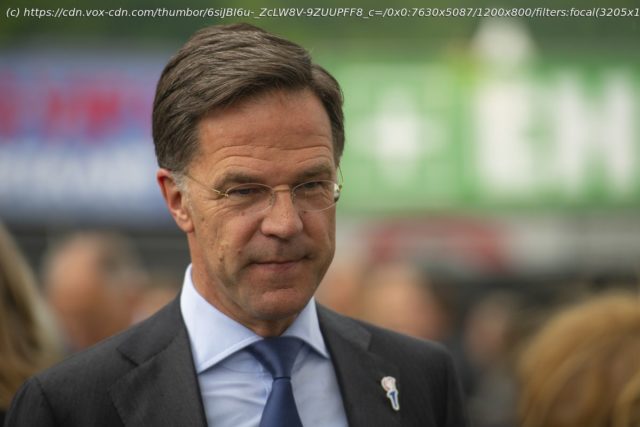Dutch Prime Minister Mark Rutte’s resignation could be a bellwether for the European Union
A bitter divide over immigration policy has brought down Mark Rutte, The Netherlands’ longest-serving prime minister, demonstrating Europe’s increasingly polarized debate about how to manage the thousands of people risking their lives in hopes of resettling there.
Rutte handed in his resignation on Saturday to the Netherlands’ King Willem-Alexander, ending the longest-running Dutch Prime Minister’s service and forcing new general elections in the fall. Rutte’s parliamentary coalition failed to reach an agreement about new, stricter measures regarding immigration; Rutte’s party fell out with two coalition partners, the Christian Union and D66, over proposals to create a two-tiered asylum system — temporary for those fleeing conflict, and permanent for people fleeing persecution — as well as disagreements over family reunification policy, the New York Times reported Friday. Dutch immigration policy is already stricter than that of many European nations, but a recent uptick in migration from countries like Tunisia and Pakistan has reignited the migration policy debate throughout the continent.
Though migration to Europe has not reached the levels seen in 2015 and 2016 during the height of the Islamic State’s caliphate and the Syrian civil war, economic fallout from the Covid-19 pandemic, conflict in Ukraine and parts of Africa, and political and social crises in the Global South have collided to push people from their home countries — often via unsafe and irregular routes like human smuggling.
But the people who are now attempting to make a new life in Europe are facing a very different political and social context than refugees who arrived in 2015. The foreign policy of European countries, the UK, and the US is also largely consumed by Russia’s invasion of Ukraine, now entering its 19th month. The European right-wing, though it controls only a few nations like Hungary and Italy, has more influence than it did in earlier years.
Yet even strict immigration policies, like those recently implemented in the UK, haven’t stopped people from risking their lives to go there or to European countries. Furthermore, a lack of focus on and large-scale, international mobilization around migration makes the process even more dangerous, as the sinking of an Italy-bound ship carrying hundreds of people near Greece last month showed.Migration trends are increasingly complex
Migration to the EU decreased significantly in 2020 due to the Covid-19 epidemic and the resulting border closures. In 2019, the EU issued about 3 million first residence permits, which dropped to 2.3 million the next year but picked back up to 2.9 million in 2021. Though these numbers haven’t changed significantly, the number of irregular border crossings — people coming without valid visas and often by illicit means including by using people smugglers — increased by 66 percent from 2021 to 2022 according to the European Commission.
Home
United States
USA — Science What the Dutch parliament collapse reveals about European migration






